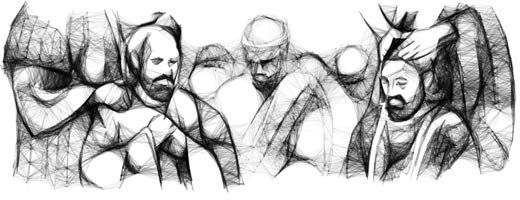By TA KA HA SHI TORU
The day was long and disappointing as I went door to door to sell Seventh-day Adventist books in the southern Japanese city of Shizuoka. No one wanted to buy a book.
Near the day’s end, I suddenly found myself on a strange, dark street. Uneasily, I walked over to the nearest house. Pornographic magazines were strewn around the yard. Piles of the magazines were stacked up near the front door. The magazines were everywhere.
I backed away. Fear seized me, and I wanted to run. Then I panicked.
“Hello, my name is Takahashi Toru!” I yelled at the house. “I’m from the Seventh-day Adventist Church, and I have some books that will change your life!”
The words came from a speech that we are trained to give by Youth Rush, a student literature evangelism program. When I panicked, I began to blurt out the speech.
The front door opened, and a severely obese man stepped out. Still following my speech, I asked, “Would you like a health book?” I expected the man to say, “No,” and I was prepared to run. But the man, his voice rumbling in a deep bass, said, “Yes, I’d like a health book.” I nervously held out a small missionary book. The man took it and opened it with interest. “Yes, I want to get this,” he said, pulling out some money. After the sale, I fled. I was scared, and I wanted to get far away.
As I ran, I prayed for the man and thanked God for His protection.
Then I stopped in my tracks. I had an epiphany. My heart was just as filthy as that man’s yard. Still, Jesus had walked into my heart and offered hope. Jesus said, “I will give you a new heart and put a new spirit within you” (Ezekiel 36:26, NKJV).
As I stood on the street, gratitude overwhelmed me. I felt so thankful that Jesus had dared to enter my heart. With that newfound appreciation, I marched over to the nearest house and immediately sold a book.
TAKA HA SHI TORU , left, a 21-year-old media-journalism student, received his Youth Rush training at Tokyo’s Setagaya Church, which trains Adventist young people from across Japan to share the gospel message. Part of this quarter’s Thirteenth Sabbath Offering will help the church expand its work.

